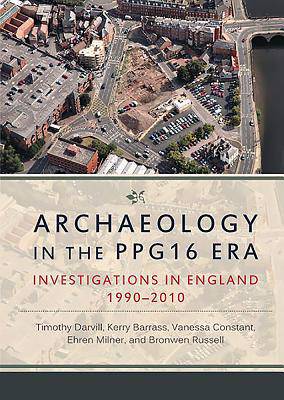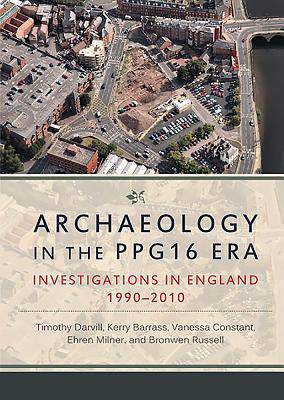
- Afhalen na 1 uur in een winkel met voorraad
- Gratis thuislevering in België vanaf € 30
- Ruim aanbod met 7 miljoen producten
- Afhalen na 1 uur in een winkel met voorraad
- Gratis thuislevering in België vanaf € 30
- Ruim aanbod met 7 miljoen producten
Zoeken
Archaeology in the PPG16 Era
Investigations in England 1990–2010
Timothy Darvill, Kerry Barrass, Vanessa Constant, Ehren Milner, Bronwen Russell
Paperback
€ 41,95
+ 83 punten
Omschrijving
This volume looks at the long-term trends in archaeological investigation and reporting, places this work within wider social, political, and professional contexts, and reviews its achievements.
Specificaties
Betrokkenen
- Auteur(s):
- Uitgeverij:
Inhoud
- Aantal bladzijden:
- 352
Eigenschappen
- Productcode (EAN):
- 9781789251081
- Verschijningsdatum:
- 31/01/2019
- Uitvoering:
- Paperback
- Afmetingen:
- 212 mm x 278 mm
- Gewicht:
- 1236 g

Alleen bij Standaard Boekhandel
+ 83 punten op je klantenkaart van Standaard Boekhandel
Beoordelingen
We publiceren alleen reviews die voldoen aan de voorwaarden voor reviews. Bekijk onze voorwaarden voor reviews.







